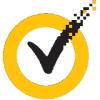How To: Install Volume-Licensed Office 2019
This article offers a simple tool and some instructions to help anyone with the following problem: You've obtained a copy of Microsoft Office (for Windows) via Microsoft's charity donation scheme, only to discover that you have to use their Volume Licensing system to install it. This means that you don't get a nice, easy setup wizard to follow; instead, you find the process less than straight forward for those who don't live and breathe technology.









Recent comments